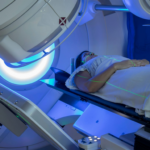
Cancer remains one of the most formidable challenges in modern medicine, affecting millions of lives worldwide. While treatment approaches continue to evolve, radiation therapy stands as a cornerstone in the fight against cancer. In this comprehensive guide, we’ll delve into the intricacies of radiation therapy, exploring its mechanisms, applications, benefits, and considerations. Additionally, we’ll highlight the expertise offered by Cancer Care Pune (https://www.cancercarepune.com/) and Dr. Jagdish Shinde, a renowned oncologist, in delivering effective and compassionate care to cancer patients.
The Basics of Radiation Therapy:
Radiation therapy, also known as radiotherapy, employs high-energy radiation to target and destroy cancer cells. It is based on the principle of damaging the DNA within cancer cells, preventing them from proliferating and spreading. Radiation therapy can be delivered externally or internally, depending on the type and location of the cancer.
1. External Beam Radiation Therapy (EBRT):
- In EBRT, a machine delivers radiation beams from outside the body, precisely targeting the tumor.
- Advanced techniques such as Intensity-Modulated Radiation Therapy (IMRT) and Stereotactic Body Radiation Therapy (SBRT) allow for highly focused and precise treatment delivery.
2. Internal Radiation Therapy (Brachytherapy):
- Brachytherapy involves placing radioactive sources directly into or near the tumor site.
- This allows for the delivery of a high dose of radiation to the tumor while minimizing exposure to surrounding healthy tissues.
Applications of Radiation Therapy:
Radiation therapy plays a crucial role in the treatment of various types of cancer, either as a primary treatment modality or in combination with other therapies. Its applications include:
- Curative Treatment: Radiation therapy can be used with the intent to cure cancer, either alone or in conjunction with surgery and chemotherapy.
- Adjuvant Therapy: Following surgery, radiation therapy may be administered to eliminate any remaining cancer cells and reduce the risk of recurrence.
- Palliative Care: Radiation therapy helps alleviate symptoms and improve quality of life in advanced cancer cases by shrinking tumors and relieving pain.
- Neoadjuvant Therapy: Radiation therapy administered before surgery can shrink tumors, making them more manageable for surgical removal.
Benefits of Radiation Therapy:
1. Precise Tumor Targeting:
- Modern radiation therapy techniques allow for highly precise targeting of tumors while minimizing damage to surrounding healthy tissues.
2. Effective Cancer Control:
- Radiation therapy effectively destroys cancer cells, either by directly killing them or by preventing their ability to grow and divide.
3. Non-Invasive Treatment:
- Unlike surgery, radiation therapy is a non-invasive treatment modality, meaning there are no incisions or wounds to heal afterward.
4. Outpatient Procedure:
- Many radiation therapy sessions are performed on an outpatient basis, allowing patients to return home shortly after treatment.
5. Improved Quality of Life:
- By shrinking tumors and alleviating symptoms, radiation therapy can significantly improve a patient’s quality of life, allowing them to better tolerate other treatments and enjoy daily activities.
Considerations and Side Effects:
While radiation therapy is a valuable tool in cancer treatment, it does come with potential side effects and considerations:
- Skin Reactions: Radiation therapy can cause skin reactions, such as redness, itching, and peeling, in the treated area.
- Fatigue: Many patients experience fatigue during radiation therapy, which may persist throughout the treatment course.
- Localized Side Effects: Depending on the area being treated, patients may experience side effects such as difficulty swallowing, nausea, or changes in bowel habits.
- Long-Term Effects: Radiation therapy may increase the risk of long-term side effects, such as radiation-induced fibrosis or secondary cancers, in some cases.
Expertise at Cancer Care Pune:
Cancer Care Pune, under the leadership of Dr. Jagdish Shinde, stands at the forefront of cancer care in the region, providing comprehensive and compassionate treatment to patients. Dr. Shinde, a seasoned oncologist with expertise in radiation therapy, leads a multidisciplinary team dedicated to delivering personalized care tailored to each patient’s unique needs.
- State-of-the-Art Facilities:
- Cancer Care Pune is equipped with state-of-the-art radiation therapy equipment, allowing for the precise delivery of radiation to target tumors while sparing healthy tissues.
- Individualized Treatment Plans:
- Dr. Jagdish Shinde and his team develop individualized treatment plans based on each patient’s diagnosis, stage of cancer, and overall health status.
- Patient-Centered Approach:
- The team at Cancer Care Pune prioritizes patient comfort, well-being, and involvement in decision-making throughout the treatment process.
- Supportive Care Services:
- In addition to radiation therapy, Cancer Care Pune offers a range of supportive care services, including nutritional counseling, pain management, and psychological support, to enhance patients’ overall experience and outcomes.
Advancements and Future Directions:
As technology and research continue to advance, radiation therapy is evolving to become more precise, effective, and tailored to individual patient needs. Emerging techniques such as proton therapy, immunotherapy, and targeted radiation therapy hold promise for further improving cancer treatment outcomes and minimizing side effects.
Conclusion:
Radiation therapy stands as a vital component in the comprehensive management of cancer, offering targeted and effective treatment options for patients across various disease stages. With its ability to precisely target tumors while sparing healthy tissues, radiation therapy plays a crucial role in achieving optimal outcomes and improving patients’ quality of life. Under the guidance of experts like Dr. Jagdish Shinde at Cancer Care Pune, patients can receive compassionate, individualized care that integrates the latest advancements in radiation therapy with a patient-centered approach, fostering hope and healing in the journey against cancer.




